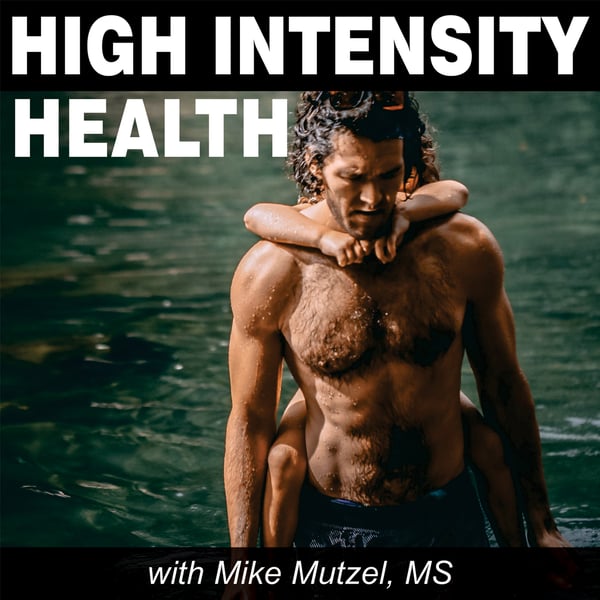Media Claims Protein 'Damages Your Arteries' Here’s The Study Facts
High Intensity Health with Mike Mutzel, MS
Mike Mutzel
4.8 • 1.2K Ratings
🗓️ 28 February 2024
⏱️ 24 minutes
🧾️ Download transcript
Summary
Sensational media coverage of a new study claims ‘protein damages your arteries' but upon deeper inspection, the study didn't even look at artery health.
Crush your workouts with the Creatine Enhanced Electrolyte Stix by MYOXCIENCE: https://bit.ly/electrolyte-stix
Save with code: Podcast
Show notes and research: https://bit.ly/3uRW3pC
Time Stamps:
0:00 Intro
0:07 Media Coverage
0:44 Actual study
1:34 Junk protein and canola oil
3:44 Graphical abstract
5:00 Immune cells and arterial plaque
6:04 Human arm of study
7:44 Mice prone to heart disease
8:50 Plant VS Animal protein
9:27 mTOR in immune cells
10:02 New mechanism of heart disease?
11:20 Human arm of study
12:13 Protein used in study
14:13 Protein stimulates mTOR
15:40 Study conclusions
Transcript
Click on a timestamp to play from that location
| 0:00.0 | According to the media, eating protein damages your arteries. |
| 0:03.3 | Here's a sensational post from the Newark Post titled, |
| 0:06.4 | You Might Be Eating an Artery damaging amount of protein, |
| 0:09.2 | new study warns. |
| 0:10.4 | In today's show, we're going to break down the findings and the actual outcomes of this particular study and look at how investigators sought to ascertain whether or not low versus high amounts of protein increase the process known as |
| 0:23.2 | atherosclerosis or the clogging of your arteries. The title of this |
| 0:27.4 | particular analysis that was published just yesterday the 20th of February |
| 0:32.0 | in nature metabolism which I consider to be a high impact |
| 0:35.9 | journal nature has nature endocrinology nature obesity there's a lot of great |
| 0:39.5 | nature journals and nature sub-journalists of nature I should say. So here is the title here, identification |
| 0:44.6 | of a leucine-mediated threshold effect |
| 0:46.8 | governing macrophage emptor signaling |
| 0:49.4 | and cardiovascular risk. |
| 0:51.9 | Okay, so there's a lot of multisyllabic jargonistic terms in here. Let's just quickly |
| 0:56.1 | talk about what is M. Tor signaling. M. Tor is the acronym for a kinase known as |
| 1:02.2 | mechanistic target of rapamycin, which as many of you know is the |
| 1:05.1 | kindase known as mechanistic target of rapomycin which as many of you know is a pro-growth |
| 1:06.4 | pathway within the body. Some people like to make the assertion that m. Tor |
| 1:11.0 | is bad and therefore suppressing m. Tor is always favorable. |
| 1:15.0 | But really what we would like is periodic ebbs and flows in M.Tore signaling |
| 1:19.6 | such as after a meal, which is quite curious |
| 1:22.8 | because in this particular study, |
... |
Please login to see the full transcript.
Disclaimer: The podcast and artwork embedded on this page are from Mike Mutzel, and are the property of its owner and not affiliated with or endorsed by Tapesearch.
Generated transcripts are the property of Mike Mutzel and are distributed freely under the Fair Use doctrine. Transcripts generated by Tapesearch are not guaranteed to be accurate.
Copyright © Tapesearch 2025.

